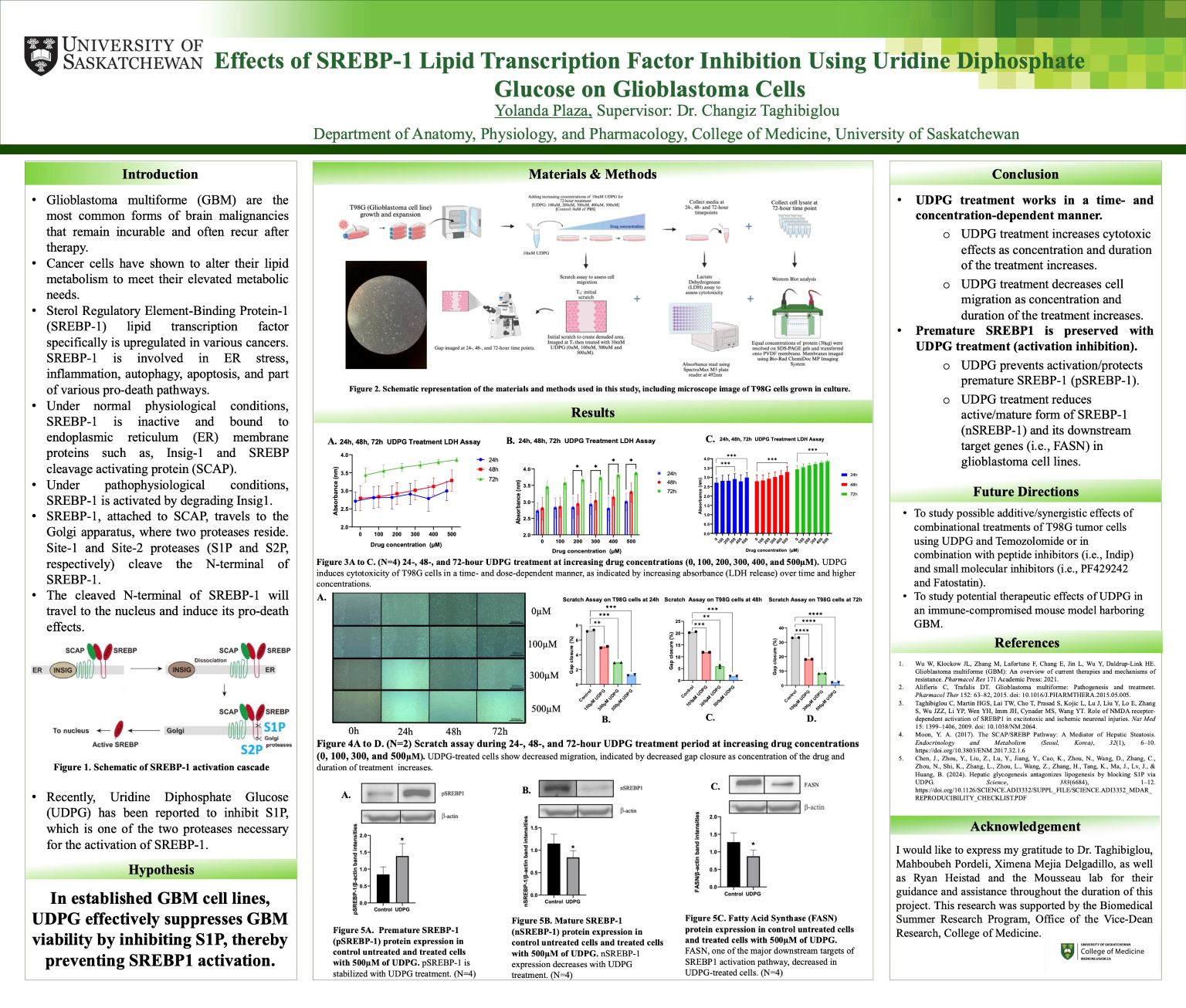
Effects of SREBP-1 Lipid Transcription Factor Inhibition Using UDPG on Glioblastoma Cells
Yolanda Plaza
Glioblastoma multiforme (GBM) are one of the most aggressive brain malignancies and is associated with dysregulated lipid metabolism, specifically the overexpression of Sterol Regulatory Element-Binding Protein-1 (SREBP-1), which is a key transcription factor in lipid regulation. This study investigates the effects of inhibiting SREBP-1 using Uridine Diphosphate Glucose (UDPG) in T98G GBM cell lines. UDPG has been reported to inhibit Site-1 protease, one of the two proteases required for SREBP-1 activation. T98G cells were treated with increasing concentrations of UDPG over a 3-day period. Cells were then collected and analyzed for cytotoxicity, cell migration and protein expression using lactate dehydrogenase (LDH) assay, scratch assay, and Western blotting. Results demonstrated that UDPG induced significant cytotoxic effects in a time- and concentration-dependent manner and reduced cell migration. Additionally, UDPG preserved premature SREBP-1, thereby reducing activation of mature SREBP-1 and downstream targets. These findings suggest that UDPG effectively inhibits SREBP-1 activation and exerts both cytotoxic and anti-migratory effects in glioblastoma cells. GBM are known to be resistant to chemotherapy and radiation, making them particularly difficult to treat. Despite the available treatment options, glioblastomas tend to recur after aggressive therapy, underscoring the need for novel therapeutic approaches that can overcome the challenges associated with treating GBM.
